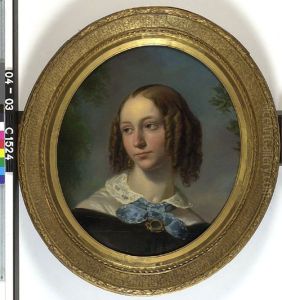Martinus Wilhelmus Liernur Paintings
Martinus Wilhelmus Liernur was a Dutch civil engineer and inventor, known primarily for his work in the field of urban sanitation and sewerage systems. While not a traditional artist, Liernur's inventive spirit and impact on public health through his engineering works can be seen as a form of industrial artistry that has shaped the urban landscapes in the Netherlands and beyond.
Born on September 5, 1820, in the Hague, Netherlands, Liernur pursued a career in civil engineering at a time when Europe was grappling with the challenges posed by rapid urbanization during the Industrial Revolution. Overcrowded cities were plagued with public health issues, and Liernur recognized the urgent need for better sanitation to combat the spread of diseases like cholera.
Liernur's most significant contribution to the field was his invention of the Liernur system of pneumatic sewerage. This innovative system, patented in 1867, aimed to improve urban sanitation by using air pressure to transport sewage from individual buildings to a central processing location. The system was considered a pioneering approach to waste disposal and was implemented in several Dutch cities, as well as in other European locations.
Despite the initial success and adoption of his system, Liernur's invention eventually faced competition from the simpler and more economical gravity-based sewer systems. As a result, the use of the Liernur system declined towards the end of the 19th century.
Liernur's dedication to improving public health through engineering is a testament to his ingenuity and foresight. Although his system did not become the standard in the long term, it paved the way for further innovations in the field of sanitary engineering.
Martinus Wilhelmus Liernur passed away on July 25, 1898. While not remembered as an artist in the conventional sense, his legacy as an inventive engineer with a strong impact on public health infrastructure endures. Liernur's work exemplifies how technical creativity and a commitment to societal well-being can leave a lasting impression on the world.




